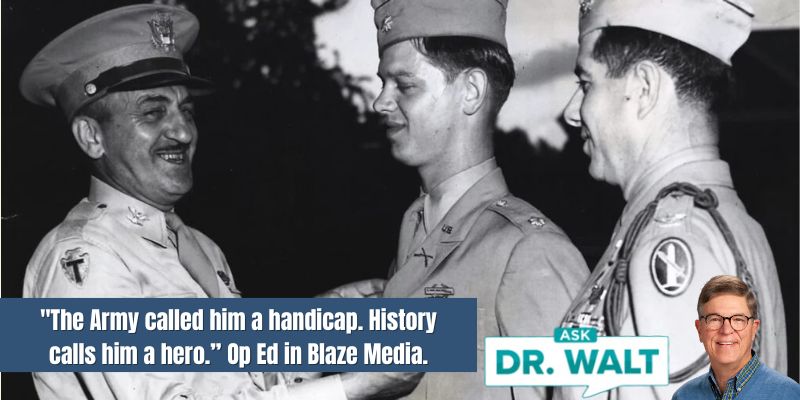
January 16, 1945 — A surprising but warm and wonderful stew on the frozen battlefield
January 16, 2025
January 18, 1945 — Morale was raised another notch with the far-overdue arrival of winter clothes
January 18, 2025During January, Phil’s 30th Infantry Regiment instituted what the commanders called “Local Rest Camps,” but what the front-line men called “The Miraculous Tents.”[1]

Each platoon received a “drying tent” equipped with a stove and facilities for washing feet, shaving, and cooking. Every twenty-four hours, soldiers were rotated to the drying tent for at least two hours to get warm and clean up, which cut down considerably the chance of developing frostbite and trench foot.
The drying tents raised morale, as did finding wandering chickens at small cottages and farmhouses that had been evacuated. The chickens weren’t killed, however, because they lay eggs, which the men loved to scramble and eat.
Each morning patrols were sent out with two objectives: Keep the Germans at bay and recover as many eggs as possible. In one abandoned farmhouse, troops found hams and sausages hanging from a beam. There was nothing better than a warm plate of ham and eggs, a welcome change from the usual canned rations.
On another day, a much perturbed and highly irritated French woman ran screaming into a company CP, complaining to the commanding officer that six of her prize chickens had been stolen. The officer reimbursed her for her trouble and wrote a report about the missing chickens. “Two were KIA, two were MIA, and the other two were last seen were being ‘coaxed’ down the road at bayonet point, as POWs,” he inscribed for the record.
Another night, the Germans set up a loudspeaker near the frontlines and treated the GIs to a round of jive music and a plea to come over to their side and surrender. The German voice informed the men that “the Communist, Jew-loving Roosevelt had involved them in a hopeless war.”
The GIs were hardly impressed and called for a heavy artillery barrage in the direction of the loudspeaker. The pinpoint-placed fire from a Yankee artillery unit silenced the music.[1]
~~~~~
Throughout the period of 17 to 21 January the 30th Infantry Regiment rested, reequipped, and trained.
During this five-day interlude in the dead of winter, the Regiment prepared for an all-out attack to eliminate the Colmar pocket.
Crossings of the Fecht and Ill rivers were planned. Training for these crossings was objective. Battalion river-crossing problems were conducted during the hours of darkness to stress stealth and control.
Other training was conducted in use of snowshoes and ski schools were also conducted. Plans were written and full staff preparations completed under direction of Colonel McGarr.[2]
~~~~~
[1] Larimore, At First Light, 182-183.
[2] Prohme, 305-306.
In case you haven’t read or listened to Dad’s book, you can learn more or order it here.
© Copyright WLL, INC. 2025.



